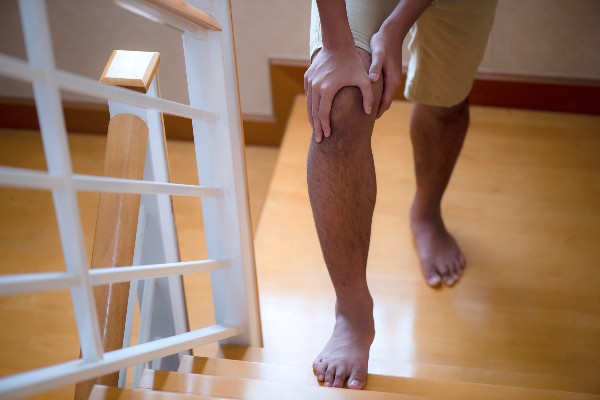Is your knee pain making it difficult to perform daily activities such as walking or climbing stairs? Are medications and walking supports no longer providing any relief? Do you have pain even when sitting or lying down? If you answer yes to any of these questions, you may be a candidate for total knee replacement surgery.
“The knee is the largest joint in the body. When it’s damaged due to arthritis, trauma or other destructive diseases, it becomes very challenging to move throughout your day,” says Orthopedic Surgeon Steven J. Hospodar, M.D., with Riverside Orthopedic and Sports Medicine Specialists Gloucester. “Knee replacement is one of the most successful surgical procedures in all of medicine, and close to 800,000 knee replacements are performed in the United States every year.
Dr. Hospodar explains the conditions that most often result in surgery, along with the procedure itself and the recovery.
Who benefits from knee replacement?
Total knee replacement surgery is an option for patients who experience chronic knee pain and disability, often due to arthritis or injury. Osteoarthritis is the most common reason for knee replacement surgery. Other types of arthritis, such as rheumatoid or post-traumatic, can also be treated with knee replacement. There are no age or weight restrictions on this surgery. Instead, the need for the procedure is determined by the level of pain and disability you are experiencing.
What happens during total knee replacement?
During a total knee replacement procedure (also called knee arthroplasty), the surgeon replaces surface bones with an artificial joint. The surgery lasts about two hours and you will be under anesthesia during the procedure. After the surgery is complete, you’ll move to a recovery room for several hours. Some patients will stay in the hospital overnight while others go home the same day.
Preparing for recovery
“After your surgery, you’ll need help with cooking, shopping, bathing, and doing laundry for several weeks,” adds Orthopedic Surgeon Barbaro J. Perez, M.D., also with Riverside Orthopedic and Sports Medicine Specialists Gloucester. “Plus, you won’t be able to drive and may need to modify your home so you can get around. This requires advance planning, especially if you live alone and need to hire someone to assist you.”
Your care team will help you understand the steps to take to prepare for your recovery and rehabilitation after you are home from the hospital.
Once home, you’ll work with a physical therapist to rebuild your strength and movement. If you exercise as instructed, you should be able to do most daily activities within 3-6 weeks after surgery.
You can move again!
Once you’ve fully recovered and healed from your surgery, you can expect both significant pain relief and improved mobility.
“When you’ve fully recovered, you’ll be able to walk, swim, drive, hike, bike, dance and more,” says Dr. Hospodar. “But to avoid excessive wear and tear on your new joint, we don’t recommend high-impact activities such as running, jogging or jumping. With proper care, your knee replacement will last more than 15 years.”
If knee pain is limiting your life, talk to your primary care physician or make an appointment with a Riverside orthopedic surgeon.



